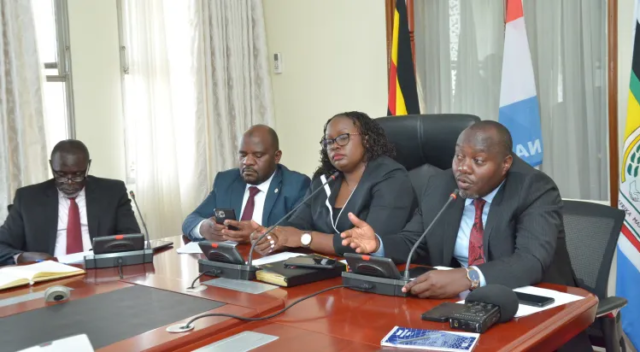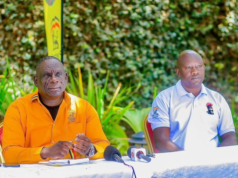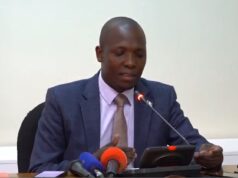
The Shadow Cabinet has described the Bi-Annual Performance Reports by the Inspectorate of Government– IG to Parliament as ‘abysmal’ and disproportionate compared to the funding appropriated to it by Parliament.
This comes a few days after the IGG, Beti Kamya Turwomwe submitted a 74-page performance report to the Speaker of Parliament, Anita Among, covering the period between January-June 2022, July-December 2022, and January-June 2023 highlighting key milestones achieved.
The Report revealed a decline in the conviction of corrupt officials from 53 percent to 40 percent during the period under review. A total of Shillings 7.99 billion Shillings was recovered from 3,504 corruption complaints registered between January 2022 and June 2023. In the same period, 43 convictions were made out of the 92 prosecutions concluded.
The Inspectorate was able to order a refund of 38 billion Shillings from different culprits, who have started paying back. But Joyce Bagala Ntwatwa, the Mityana District Woman Representative and Shadow Minister for Information and Anti-Corruption is dismayed that what the Inspectorate has presented “is a very minute fraction of monies recoverable.”
Bagala argues that the Inspectorate, under the current budget for FY 2023/2024, was allocated Shillings 86.470 billion Shillings to execute its mandate but the Inspectorate only managed to recover a paltry Shillings 7.9 billion. She argues that according to the 2021 Report of the Inspectorate on the Cost of Corruption the country loses about Shillings 10 trillion, about 23% of the annual national budget every year to corruption.
Abdallah Kinwanuka, the Shadow Minister for Internal Affairs, also the Mukono North Constituency legislator, blamed President Yoweri Museveni for lacking the political will to fight rampant graft, which explains the failure of several government programs.
The legislators told journalists that the IGG had only investigated 1,528 (43.6%) complaints since January 2022 out of the 3,504 corruption complaints it recorded while only 47% of the cases were prosecuted and resulted in convictions. According to the IGG, the conviction rate slightly declined from 53.3% in the period from July to December 2022 to 40% in the period January to June 2023 due to the out-of-court settlements and emphasis on asset recovery.
However, the Shadow Cabinet observed that whereas the Inspectorate recorded a slight increment in recovered funds in January to June 2023 compared to the last half of 2022, there is a need to publish lists of individuals and Ministries, Departments, and Agencies – MDAS, who have been convicted for corruption and the respective amounts of monies recovered there from them.
They expressed concern that whereas out-of-court settlements seek to increase stolen funds and asset recovery, it is silent on the punitive measures instituted against such public officers.
They urged the Police to interest themselves in corruption cases that are settled out of court because this amounts to an admission of corruption, thus what can be settled out of court is the amount of money to be recovered, but not criminal liability under the Anti-Corruption Act and Penal Code Act.
Under Section 35 (b) of the Leadership Code Act, a leader who fails, without reasonable cause, to submit a declaration shall be dismissed from or shall vacate office. Notably, out of over 32,000 leaders meant to declare their assets in 2023 under the Leadership Code Act, only 26,541 were declared.
Transparency International ranks Uganda 142 out of 180 countries in the global corruption perception index. Comparatively, within the East African Community, Uganda only surpasses the Democratic Republic of Congo (DRC) at rank 166, and Burundi which ranks at 171 while Rwanda ranks 54, Tanzania ranks 94, and Kenya ranks 123.






